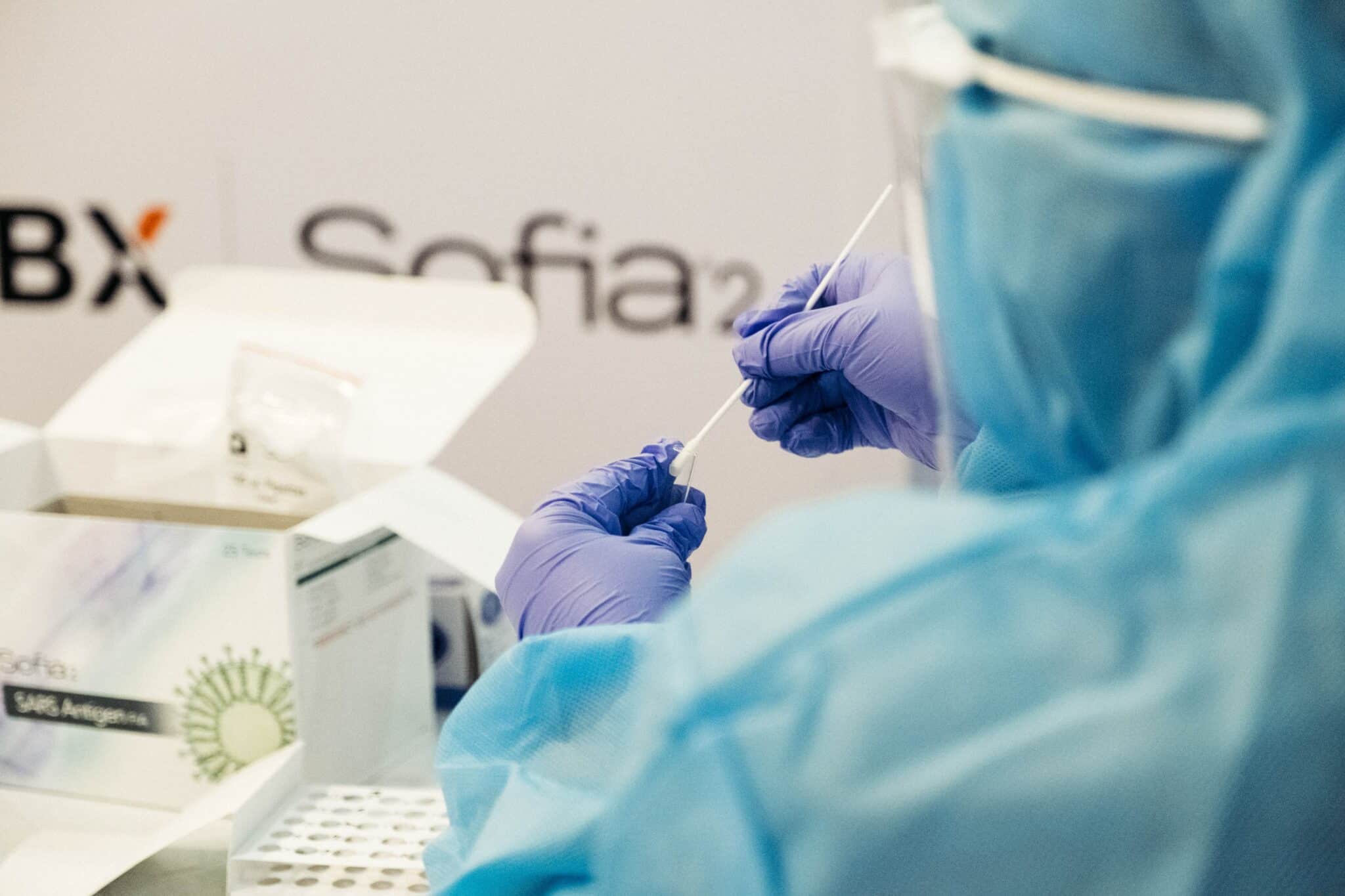COVID and Hair Loss: Can the COVID Vaccine Cause Hair Loss?

When COVID-19 first appeared, we believed it was a predictable respiratory illness, with well-defined symptoms and a relatively foreseeable path to recovery. But after three years, we’ve seen the wide range of effects that COVID-19 can have on your body: from itching and rashes to more serious side effects such as nerve damage.
COVID-19 is a highly complex disease. Fortunately, the vigorous vaccination efforts carried out globally have significantly reduced COVID’s threat.
But some people ignore the vaccine’s effectiveness or refuse to take updated shots, citing concerns about secondary effects. And one of these supposed trends is vaccination-related sudden hair loss, also known as telogen effluvium.
In this article, we will be focusing on COVID-related hair loss. We’ ll answer some common questions, including:
- What is telogen effluvium?
- Can the COVID vaccine cause hair loss?
- Does COVID-19 cause hair loss?
Let’s dive in!
What is Telogen Effluvium?
A sudden loss of hair may be extremely worrying, especially for women since they’re significantly less prone to baldness than men. In the medical community, this hair loss is called telogen effluvium (T.E).
A common affliction, telogen effluvium, is sudden hair loss triggered by stress (be it physical or emotional) or hormonal changes. To understand how it works, we must first explain the hair growth cycle.
Hair growth has three stages:
- Anagen is the growth stage when new hair cells form, causing your hair to grow longer. Most of our hair is on this stage at any given time.
- Catagen, or transitional stage, is when your follicles regress and your hair stops growing.
- Telogen is the final, or resting stage, when the hair follicle ceases all activity and waits for the moment the hair sheds, thus restarting the cycle.
Telogen effluvium, as its name indicates, supercharges the telogen stage. Basically, it causes your hair to shed instead of growing. This makes the hair loss not only sudden but also fast.
How Does Telogen Effluvium Differentiate From Alopecia?
The good news is that telogen is more forgiving than alopecia, the other great hair loss disease. For almost everyone who is affected, telogen effluvium is reversible and lasts between 3-6 months.
Alopecia also has a broader scope compared to telogen effluvium, as it may affect your whole body, from head to toe. On the other hand, T.E is much more localized, mainly affecting your scalp and occasionally your eyebrows and lashes.
Can COVID-19 Cause Hair Loss?
Now that we have an understanding of what telogen effluvium is, let’s examine the number of cases associated with COVID. The first reports of COVID related hair loss came in 2020, during the worst of the pandemic.
A study carried out between 2020 and 2021 revealed that all 39 COVID-19 patients showed noticeable symptoms of telogen effluvium. The primary cause was identified as an increase in pro-inflammatory proteins, attributable to COVID-19. This is similar to the mechanisms behind COVID rashes and autoimmune responses.
Another study from 2020 showed that out of a sample of 214 patients with telogen effluvium, 90% had been infected with COVID-19.
This condition was exacerbated by both the disease and the global situation during the early pandemic. Fortunately, most of these cases were reversed within the expected two to three months.
Can the COVID-19 Vaccine Cause Hair Loss?
Hair loss is a likely symptom of many vaccines, including hepatitis B and the COVID mRNA jab. The exact mechanism behind COVID-19 vaccines causing hair loss is still unclear. There hasn’t been enough research on the subject yet, and the sample size is small. However, it is believed that the vaccine triggers an immune response that could result in either T.E. or alopecia.
It’s important to note that vaccine-related hair loss is extremely uncommon and shouldn’t deter people from getting vaccinated. In most cases, hair loss is temporary, and affected individuals typically see their hair regrow after a few months. Plus, the benefits of vaccination in preventing severe illness and death from COVID-19 far outweigh this rare side effect.
Key Takeaways
Fears of hair loss shouldn’t deter you from getting vaccinated and boosted. The chances of it occurring are rare and almost always reversible. More than 13 billion vaccines have been applied all over the world, and their impact on COVID is clear. We are now facing a much less deadly disease than in previous years, and we can adapt to its multiple new variants.
Keep up with vaccinations and be mindful of possible symptoms; this is the only way we’ll keep COVID at bay.
If you are in need of testing, find COVID testing centers near you with our global index.



